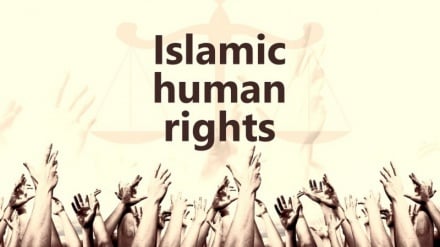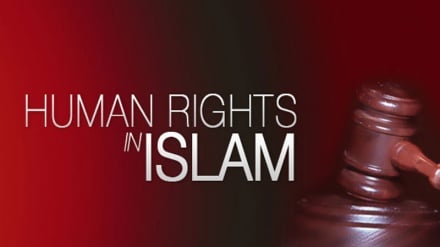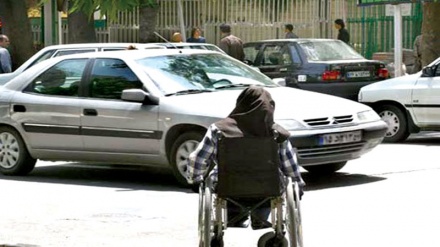Islamic human rights (6)
Today, we detail the efforts of Islamic countries for preparation of the Islamic Human Rights Charter.
Following the approval of Universal Declaration of Human Rights, a number of movements took shape in different continents round the world for promotion and implementation of human rights. The regional countries, upon approval of a number of human rights treaties, aimed to at least materialize the principles of Universal Declaration of Human Rights in the regional level. However, Islamic countries, which believed that the content of Universal Declaration of Human Rights was based on Western principles, displayed mixed reactions. A group of Islamic countries didn’t accept the principles of Universal Declaration of Human Rights in absolute terms due to their contrast with Islamic principles. In contrast, a few others accepted the principles of this Universal Declaration, matching their laws with the Universal Declaration of Human Rights and human rights conventions. Meanwhile, the third group of Islamic countries took the initiative to prepare and set the Islamic human rights rules and regulations, introducing these Islamic laws as the Islamic human rights system within the world order.
The emergence of Islamic human rights dates back to the advent of Islam. Hence, the sacred religion of Islam doesn’t consider Islamic human rights as a new topic. Nearly fourteen centuries ago, the sacred religion of Islam presented a wide range of political, economic, and social concepts on human rights. Given this background, presence of human rights principles and rules and regulations is an age-old tradition in Islam. The only topic which was not attended, up until the waning decades of the recent century, within the framework of Islamic principles, was preparation of human rights, matching the present day lawmaking role model. Meanwhile, as of the second half of 20th Century, discussions were underway by Islamic groups in the scientific circles, in a number of countries, for preparation of Islamic human rights, and several confabs were convened to this end, such that as of the year 1980 to this day, several declarations on Islamic human rights have been published.
In the year 1980, Universal Islamic Declaration was issued by the European Islamic Council, which is headquartered in London. This Declaration has tried to express the views of Islamic world. The prelude to this declaration has mentioned the divine order of the world of creation, and the creation of mankind as the superior creature by God Almighty. This introduction has referred to Islamic standpoint on the equality of human beings, and rejection of any concessions based on race, language, color, and ethnicity by Islam. This prelude also refers to the 13th ayah of Surat al-Hujurat in Holy Quran, which states: “O mankind! Indeed We created you from a male and a female, and made you nations and tribes that you may identify yourselves with one another. Indeed the noblest of you in the sight of Allah is the most Godwary among you. Indeed Allah is all-knowing, all-aware.”
This prelude concludes that Islam has granted a number of rights and freedoms to the members of the community such as freedom of religion, freedom of speech, freedom of thought, the legitimate right of possession, and dignity. This prelude also points out that within the sacred Islamic system, all of the members of Islamic community are duty bound to establish an Islamic world order based on justice. This is because God Almighty has appointed prophets to administer justice among people.
This Declaration has pointed out that the divine laws are the only rules and regulations which legitimize governments, and the government is responsible for materialization of justice in all aspects of man’s life, and should take strides to cement the unity of the Ummah and to maintain the honor and to grow and elevate the nation.
This declaration has also taken into consideration a number of other topics, including the failure of capitalist, communist, and secular systems; the framework of Islamic system; the political, economic, educational, social, and military framework; Islamic solidarity among governments and Islamic Ummah; establishment of a unified Islamic government; in addition to solidarity of Islamic Ummah.
The other document is the Human Rights Declaration issued by the European Islamic Council. This document revolves round the global viewpoints of Islam on human rights, and has been issued in London in the year 1981 AD. It was officially announced throughout UNESCO meetings in Paris on September 19, 1981. This declaration which specifically presents human rights in the view of Islam includes an elaboration by the secretary general of European Islamic Society, in addition to a prelude in twelve clauses, which depicts Islamic views on human rights and the ideal Islamic community.
As of December 9-14, 1980, a conference was convened in Kuwait by the international committee of Kuwait University lawyers, and the Arab attorneys’ union, on Islamic human rights, and the results of the views, discussions, and proposals, accepted by the participants in this confab were published under the heading of Outcomes and Recommendations of Kuwait Conference.
The Declaration of Kuwait Meetings consists of two sections. The first section discusses the results which the participants in these meetings achieved. The second section is comprised of the recommendations that the participants in Kuwait meetings presented to Islamic governments on human rights. These recommendations are in the fields of economic, social, and cultural rights; the rights of minorities; civil and political rights; and rights and status of women.
The Organization of Islamic Cooperation has also issued three declarations on human rights. The first declaration was issued in the city of Mecca in Saudi Arabia in 1979 AD. The second declaration was issued in the city of Taef in Saudi Arabia in 1981 AD, and the third declaration was approved in Cairo in 1990 AD, throughout the 19th ministerial confab of the Organization of Islamic Cooperation member states.
The Cairo declaration on Islamic human rights was prepared by the experts of the Organization of Islamic Cooperation. The declaration was drafted in the meetings of this organization, which were convened in Tehran as of December 26-28, 1989. This draft was presented for final approval at the 19th ministerial conference of Organization of Islamic Cooperation member states as of July 31-August 5, 1990, in Cairo, and was approved within the framework of a resolution, after a number of amendments in the draft copy of the declaration. The 1990 Cairo Declaration is comprised of a prelude and twenty-five articles.
Cairo Declaration on Islamic Human Rights is in fact part of the efforts of the Islamic community to show its Islamic identity to the international community, and to introduce the view of Islam on human rights.
MR/ME


